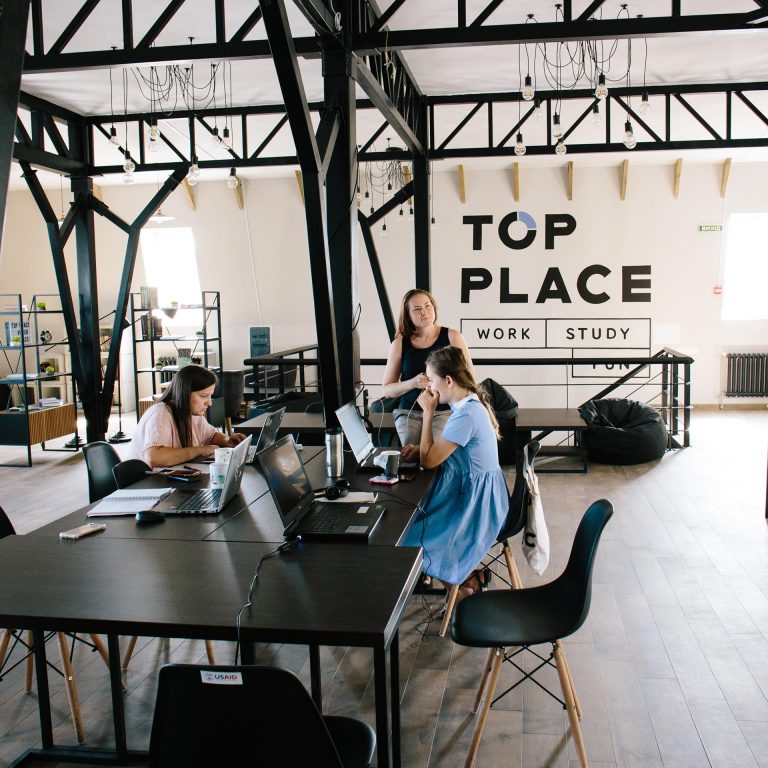After 2014, the industrial cities in the East of Ukraine, which remained in the territory under Ukrainian control, have been going through a new period of development and rethinking. After shootings and attempts to capture their hometowns, locals started taking the initiative more actively and building up space around them. In recent years, these cities have gained much more attention and support from international organizations and foundations than ever before. Thus, a bunch of public “free spaces” appeared in Eastern Ukraine allowing people to learn, share experiences, and create a civil society.
In 2016, the creative space called “Pruzhyna” (Spring) appeared in Sievierodonetsk. This is an informal society aiming to improve the city space with the help of art exhibitions, lectures, discussions, and festivals. At the same time, the public community “KhochuBudu” (IWantIWill) was established in the city.
The goal of this social platform is to develop the potential of active people and promote the implementation of public initiatives. The community works in professional, educational, cultural, sports, and ecological spheres. In 2018, a new space, based in the city library and equipped with board games, was created to unite the local youth and develop their communication skills.
In Lysychansk’s city cinema “Druzhba” (Friendship), an informal athletic culture space of the same name has been operating since 2017. It is a sports centre for local youth where skaters and BMXers can train. Сultural festivals and DJ-parties are held there. The second floor of the building is going to become a co-working zone and a shared space for 3D printing lessons and various educational programs. There will also be a movie club and a lounge area.

After 2014, the Ukrainian city of Mariupol, situated in the Pryazovia region, also got a new chance for reconsideration and development of its spaces. Many resettlers came to the city and initiated intensive public activities establishing various free spaces.
One of the first anti-cafés in Mariupol called “Joy” was founded by the resettler Mykola Petaiev. This project started off with creating a quest room and is further expanding. The first art-space of a new format called “Tiu” was established in the city by the resettler Diana Berg. “Tiu” positions itself as a platform of cultural and social initiatives.
In 2016, public space “Khalabuda” was opened in Mariupol. Meetings, educational and entertaining events are held here. A support centre for military personnel, resettlers and people in need also operates here, as well as a co-working zone and a business-incubator for the resettlers.
In the Mariupol water tower, local activist Vladyslav Zaitsev created the “Vezha Creative Space” project. The space currently provides lecture courses. Additionally, plans call for the opening of an IT-cluster, tourist information centre, and an observation deck overlooking the whole city.
More details can be found in the Ukrainer article, “Mariupol of possibilities”
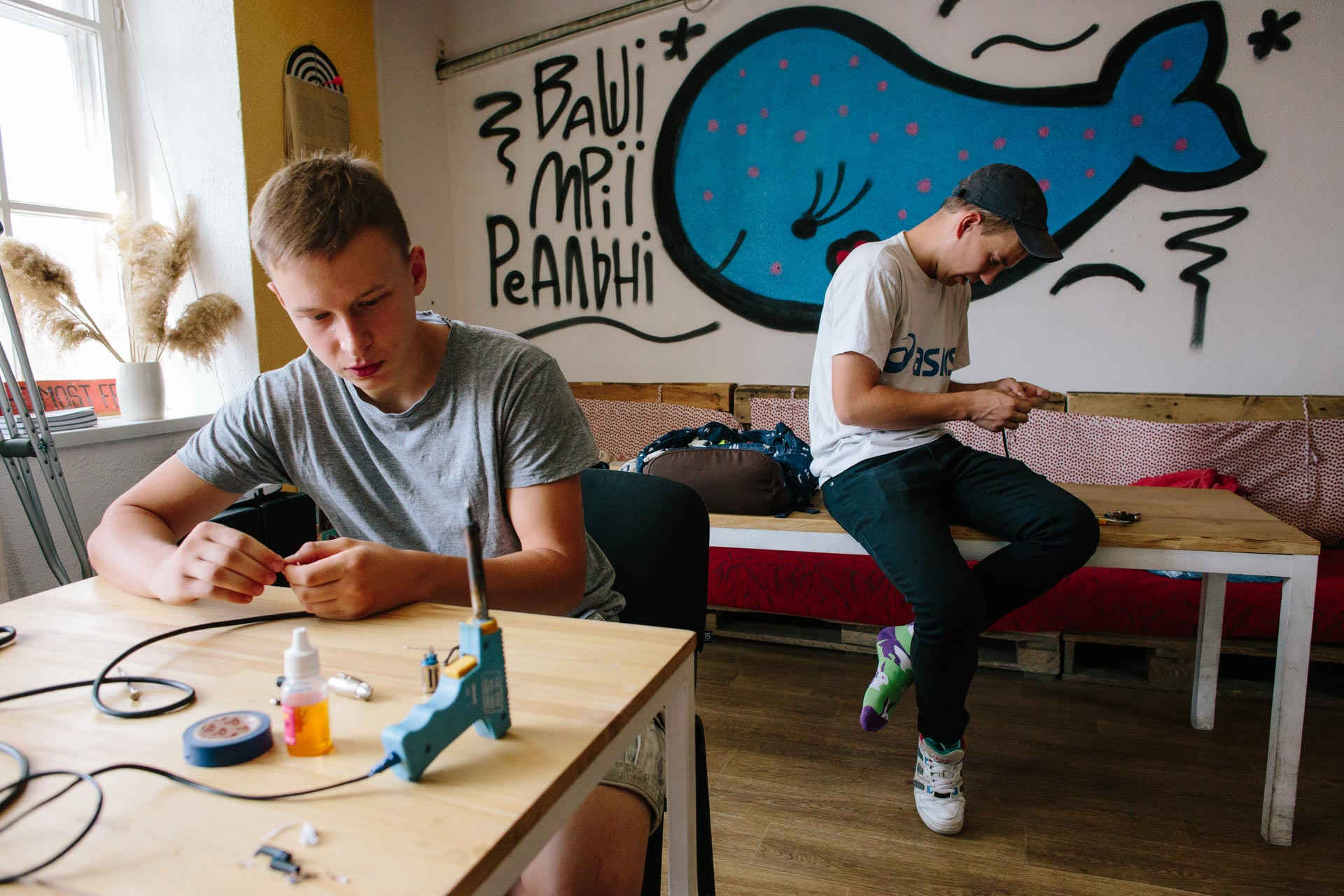
At the beginning of 2017, film expert and activist Natalka Sosnytska, together with some like-minded people, created a free space called “Druzi” in Konstantynivka. It is a creative space for public initiatives, training and recreation. Every week various events, such as lectures, trainings, workshops, concerts, screenings, games, meetings of interest clubs, and rehearsals are held here. The space operates in the fields of non-formal education, urban studies, cultural and social projects, and environmental initiatives.
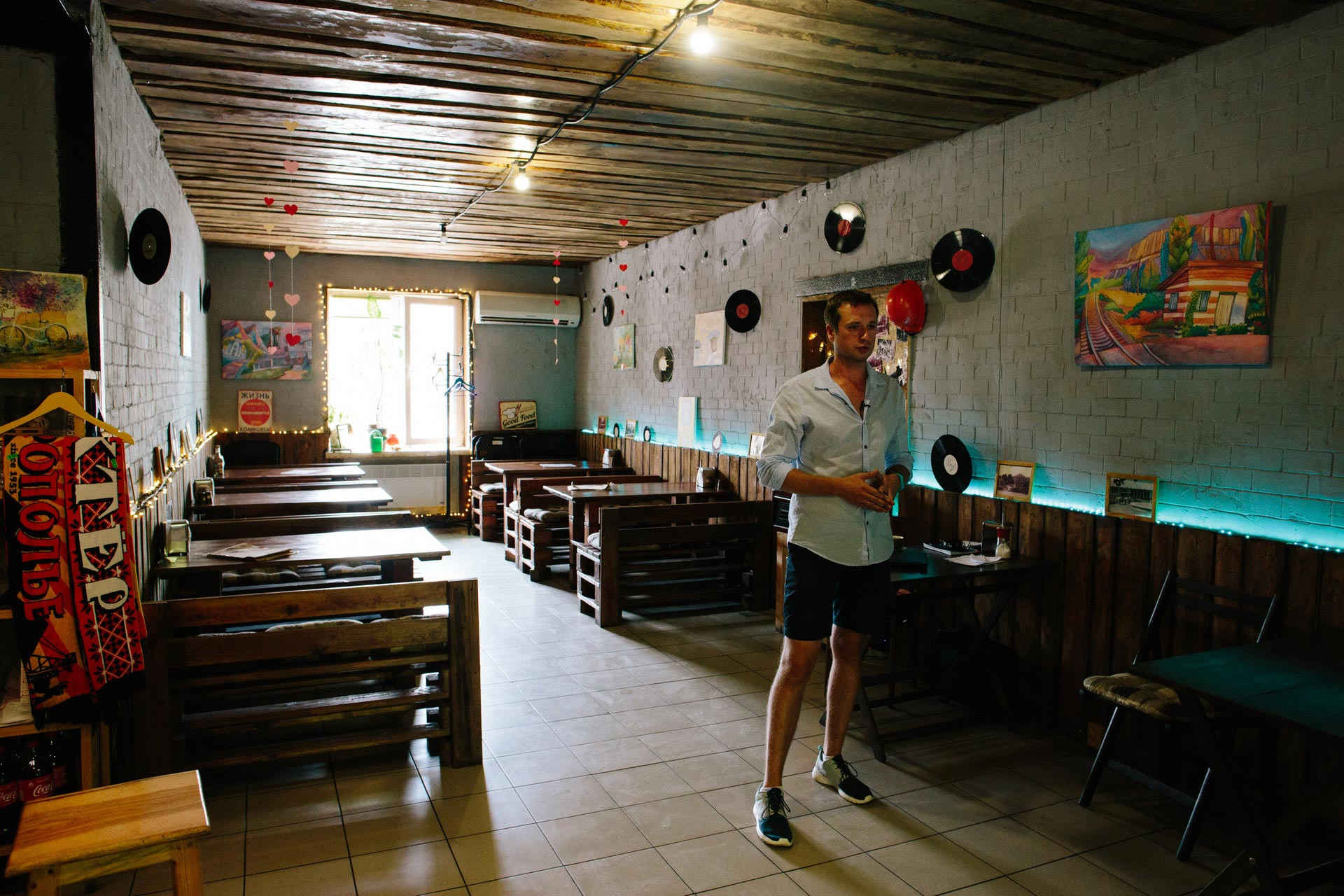
In 2016, social entrepreneur Volodymyr Oros opened art-café “Troleibus” (Trolleybus) in Dobropillia. A portion of their income goes to the Dobropillia Youth Centre. The concept of the cafe is that people visit it not only to eat, but also to spend some quality time and gain new knowledge.
Iryna Kozachuk, deputy director of the branch library №1 in Dobropillia, implements cultural projects for children and adults in this space. The library is transformed into a public space with some place available for meetings and events, an Internet center, a public square, and more. Library staff are involved in regional actions and public cleanups.
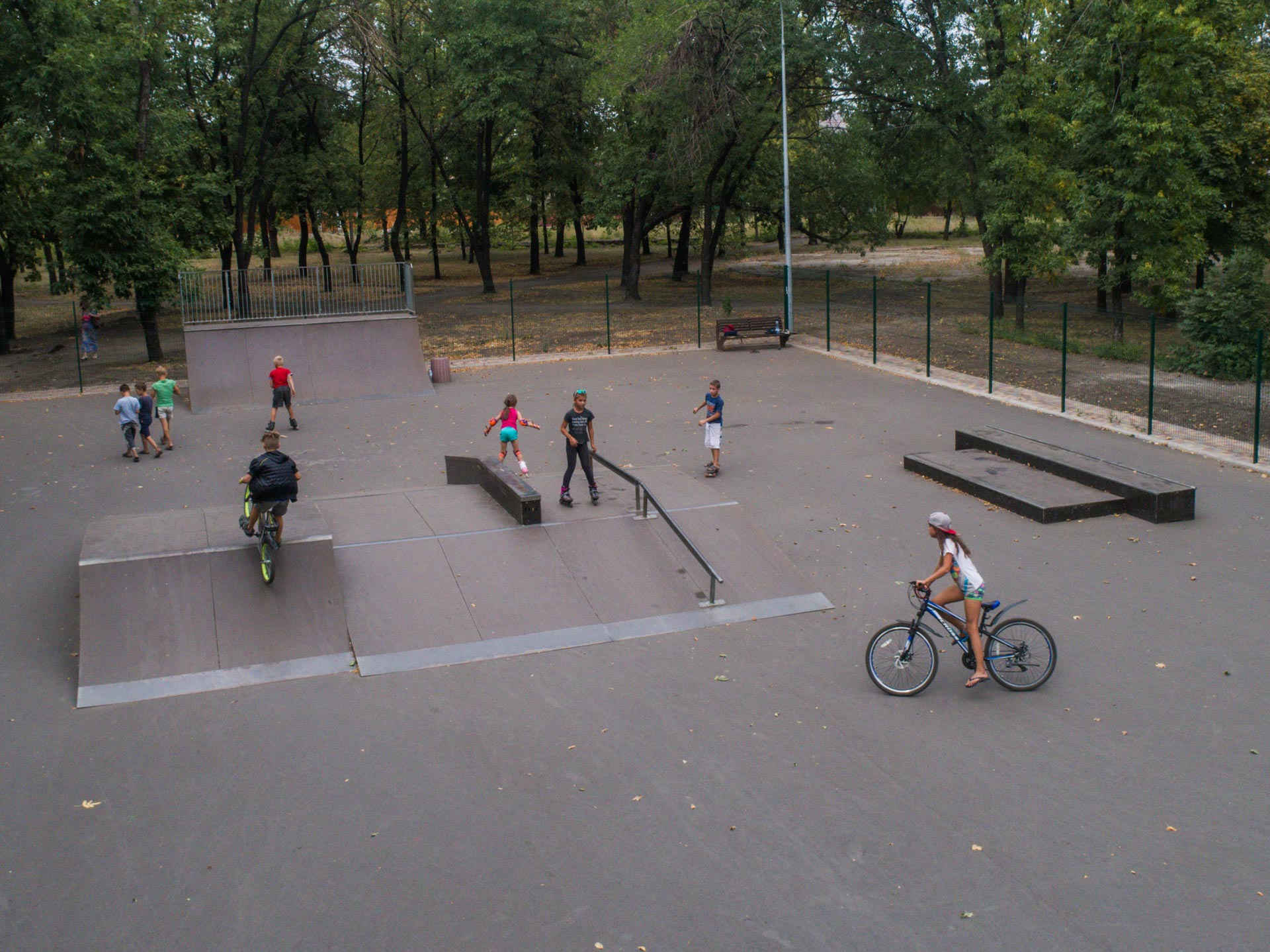
The founder of the NGO “Tvortsi istorii” (History Creators) Vladyslav Burkhovetskyi helps equip sports grounds and cultural venues in Dobropillia. The organization engages youth in their construction, assists in organizing the process, and searches for funds. In the autumn of 2018, activists set up a public space called “Ne pustyr” (Not a wasteland) in a residential area of the city. In the place of an overgrown wasteland, they built a location for children’s games, film screenings, and friendly meetings.
At the end of 2018, the public eco-space “Square 21” appeared in Dobropillia. Currently, there is an amphitheater, and it is planned to add a rest area and modern outdoor furniture.
Find more details, see the Ukrainer article, “Dobropillia. Space of Interaction”.
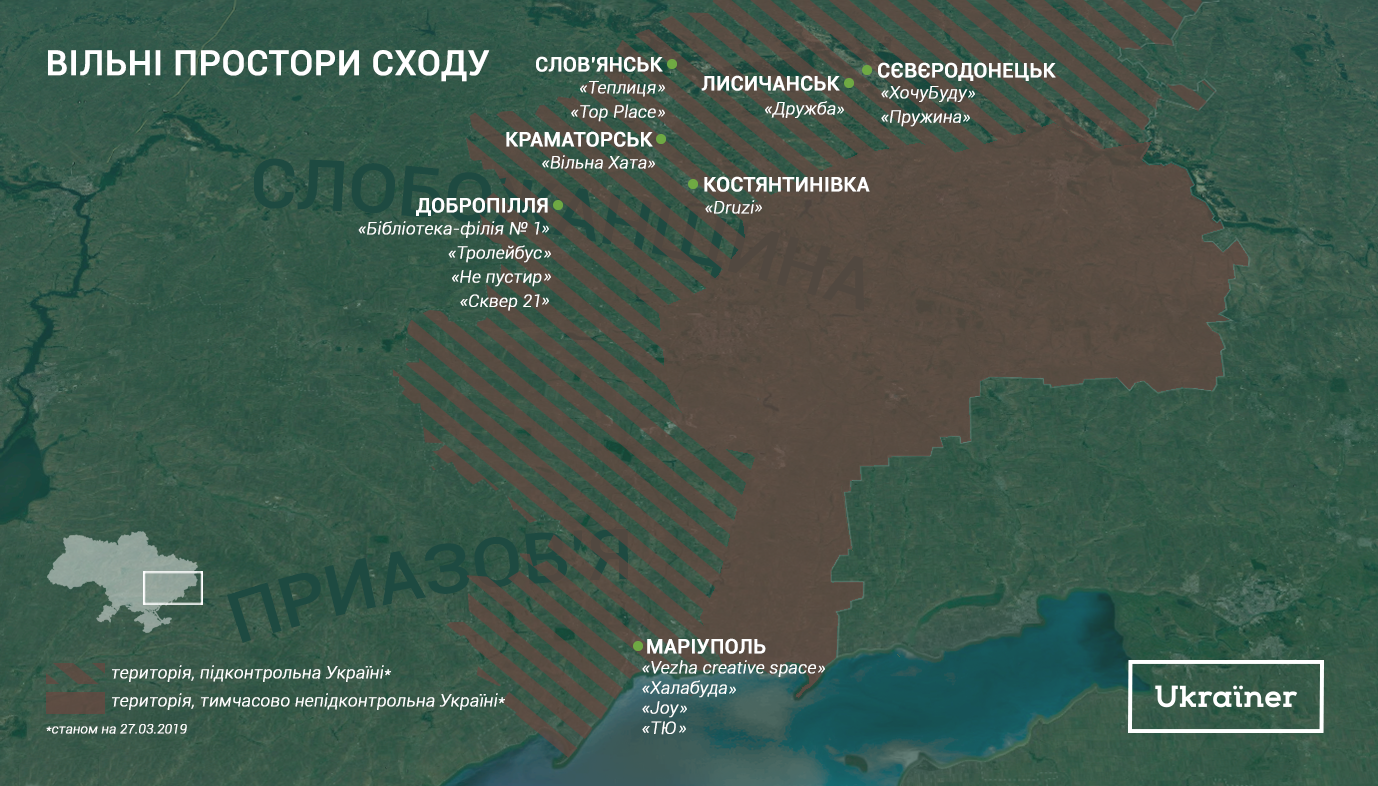
“Vilna Khata” (Free House)
“Vilna Khata” (Free House) public space located in Kramatorsk operates in several areas, including social, educational, cultural, and ecological. According to the space coordinator Mykola Dorokhov, their projects include such initiatives as “Dobryi Susid” (Kind Neighbour) (volunteer assistance to people in need), non-formal educational activities, organization of city festivals, meetings with cultural figures and more.
— “Vilna Khata” is a platform, where you can meet people and seek support for your ideas. We have already supported a few dozen initiatives in Kramatorsk and outside the city. It is also a space for personal and social development. One can come here to learn something, or come with a band to perform an acoustic concert. We have poetry evenings and a community of poets has already formed here.
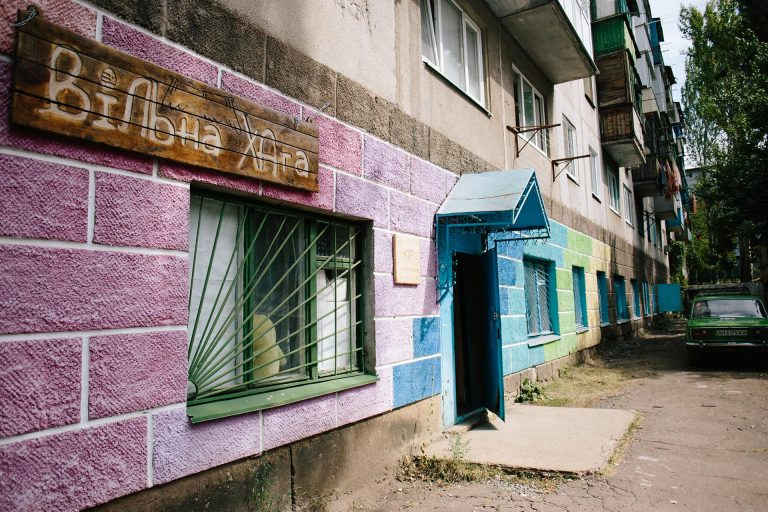
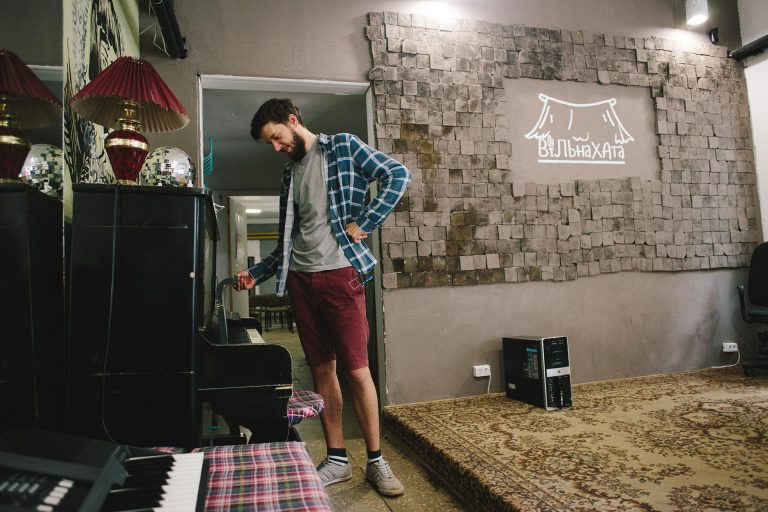
slideshow
Mykola Dorokhov says that over four years of activity, “Vilna Khata” has already affected positive changes in Kramatorsk and in the region as a whole. The public space team gladly shared their experience with activists from neighboring cities, and later similar public spaces were opened in Slovyansk, Bakhmut, Druzhkivka, Konstiantynivka, and Lyman. The story of “Vilna Khata” itself began in December 2014 with the volunteer camp, “Buduiemo Ukrainu Razom” (Building Ukraine Together).
— Volunteers from Kramatorsk and from the whole of Ukraine came here. We were mending the homes damaged as a result of the hostilities. That’s how the community willing to keep acting was formed, aiming to rebuild not only the homes, but also the society. For we have already seen the outcomes of passiveness and indifference. We don’t want it to happen again or to ever return. Thus, we need to go ahead and change our environment, since we are responsible not only for ourselves, but also for the people around us. If you want a normal life, then do something for it! You can always escape and go somewhere else, but you will come back home after all and you wouldn’t like it to be a sad place.
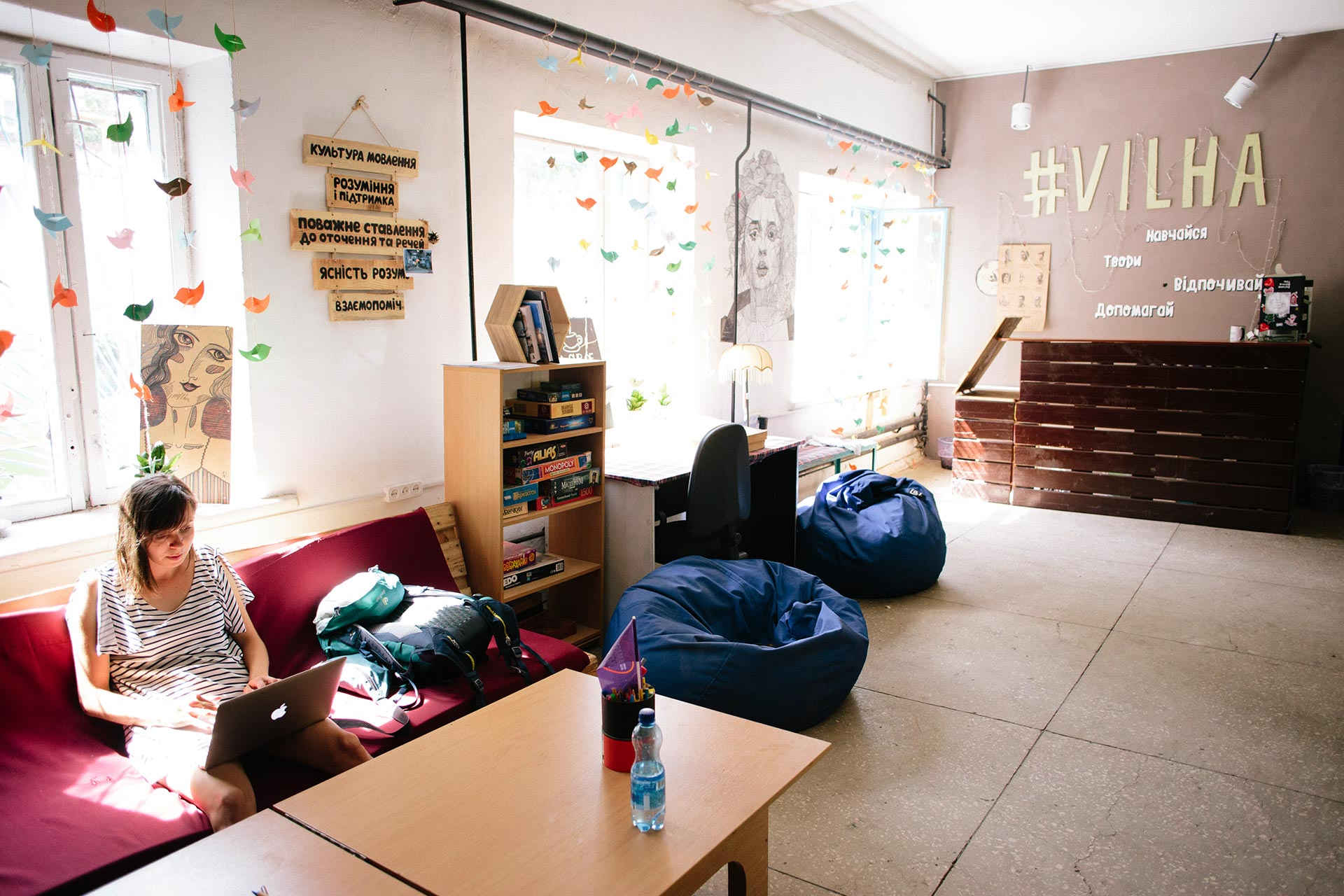
During the first two years of its existence, the public space “Vilna Khata” worked with the resource and institutional assistance of the Lviv Education Foundation. In early 2017, the public space team already established a public organization. The project also receives donor support from the American foundation USAID.
— There are many international organizations currently operating in the East, which gave rise to many platforms like ours. It’s one thing to have a desire to do something and do it, but it’s another to sustain effort for a long time. On one hand, donor support is great. It adds dynamics and more opportunities for the development of the city, and generally enriches the environment. On the other hand, donor support can be corrupting, because an initiative can be spoiled by its dependence on outside support. When an initiative evolves on its own, it can exist without many resources. If you’re handed everything on a silver platter, you get used to the good things quickly.
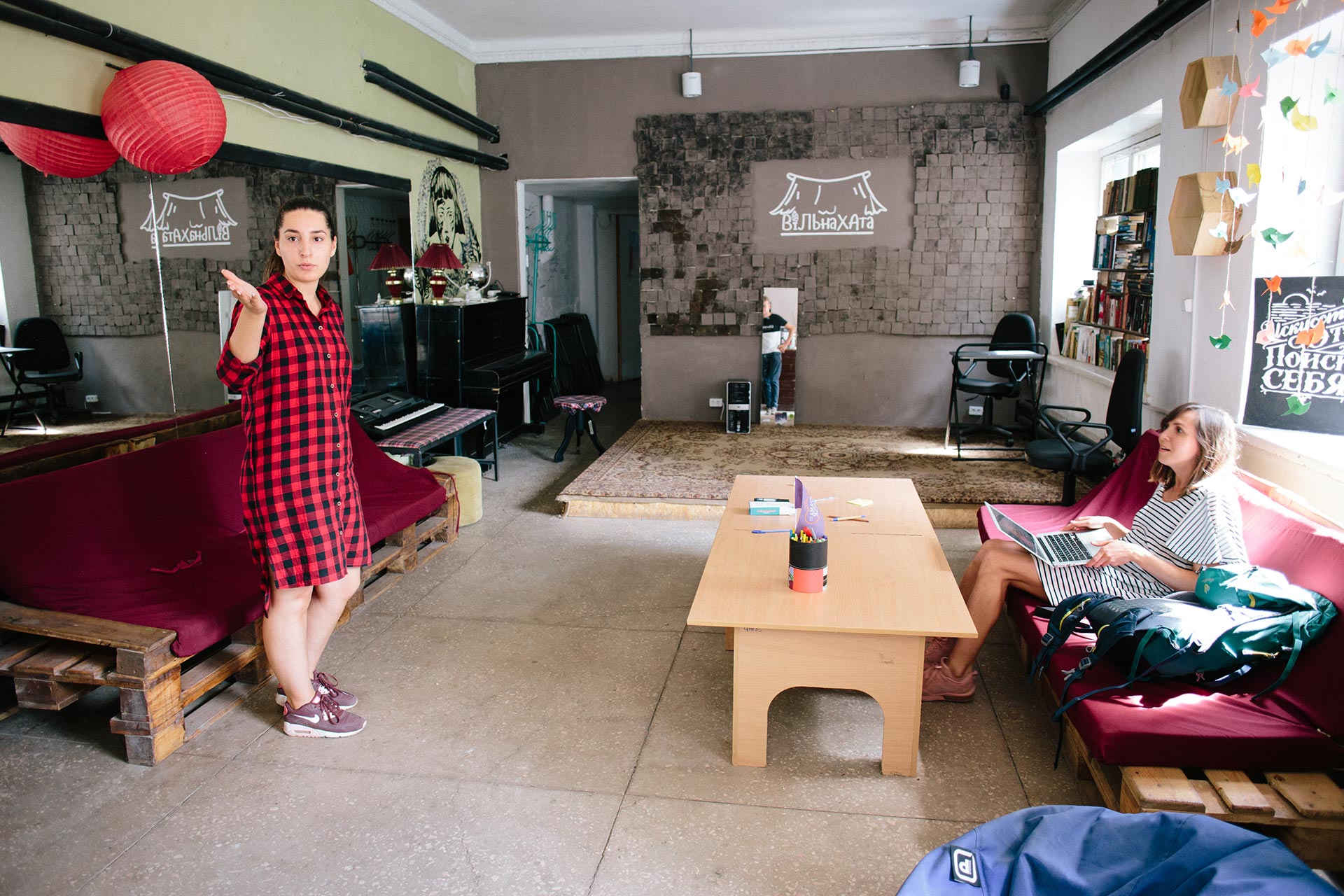
The team of “Vilna Khata” rented its first place in the centre of Kramatorsk. Mykola Dorokhov recalls that it was very convenient, because many people could quickly get to the space. Now, “Vilna Khata” is located in the communal premises provided by the local authorities.
— It is nice too, there’s a little more space and we have a clear zoning here. Besides, we’re working on creating a music studio in a separate room. It’s not a place that you can play music too loud, since we live in a residential building with many neighbours we may disturb. We now have enough sound to perform a small concert indoors. If we want a decent concert outdoors, we should add some audio volume. As for the equipment, we got everything, and we bought some equipment for the studio too.
Mykola Dokhorov recalls the events of 2014, when some unknown people came to the city and brought their own orders. In Kramatorsk, they blocked the roads and began to build the checkpoints.
— The guy [a check-point guard], who was lying in a ditch somewhere not so long ago, now doesn’t allow you to get through your own city. Walking with a stick, so serious, self-confident, and macho, he says, “Open your trunk, what you got there?”. It’s not okay. I was born in Ukraine and I want to live in Ukraine, not some mythical republic made up by a bunch of these guys. It’s outrageous that many innocent people are suffering because of this. War is a priori abnormal, and when it takes place in your home, it’s doubly abnormal
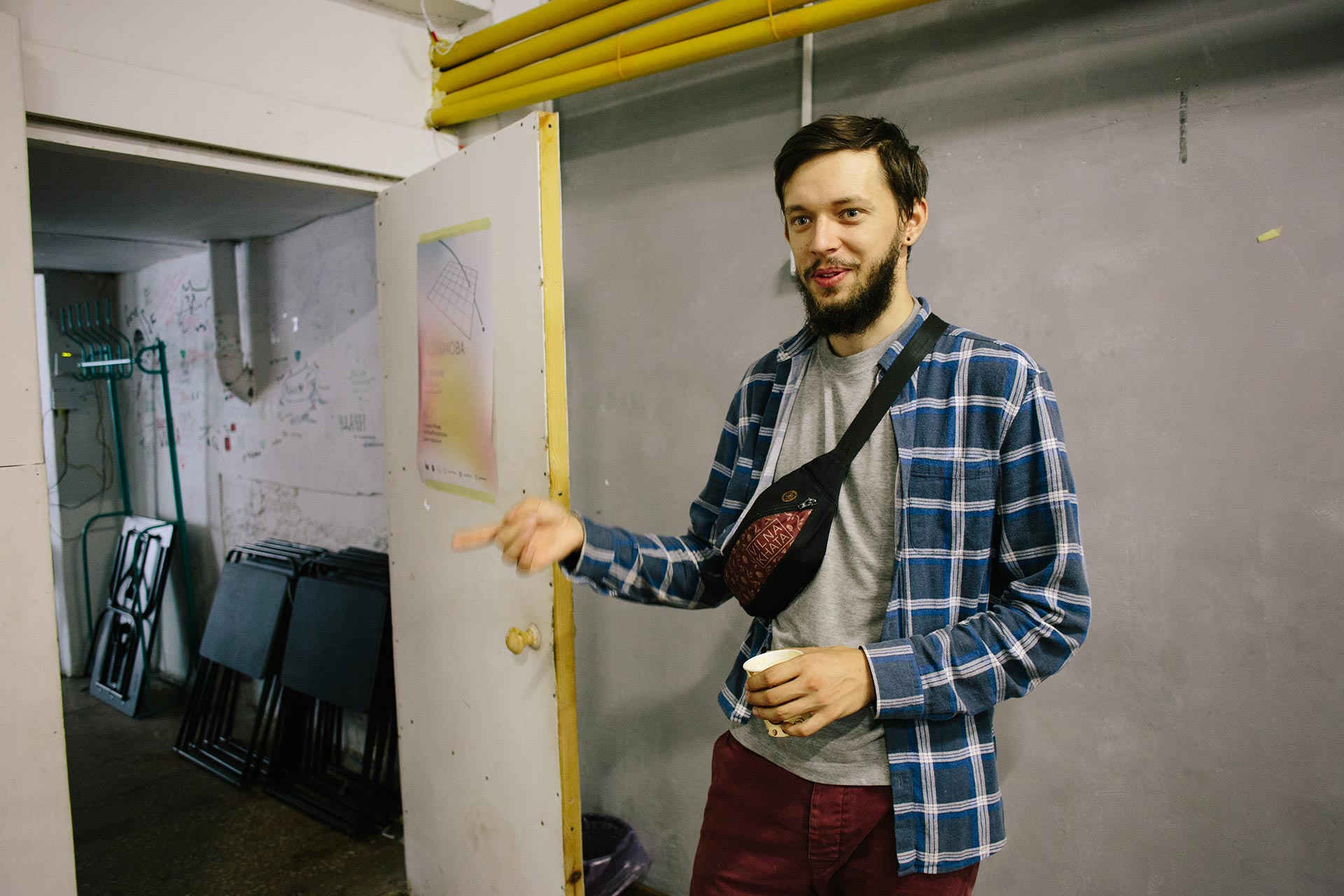
An educational trip to Lviv and acquaintance with the local initiatives in 2014 became another turning point for Mykola. That’s how he met the Lviv Education Foundation (LEF) and the Ukrainian Catholic University (UCU), which he eventually decided to enter.
— Back then I didn’t manage to enter the university’s Masters program, but four years have passed and now I’m studying there and getting qualifications for the profession which I practice— “Management of non-profit organizations.” And it’s a great honour to study in such a place and with such people. The people doing many good things all around Ukraine are gathered here, and we have one common goal unifying all of us. And these people are really eager to learn and to master their skills.
When Mykola first entered the UCU, he found out that the guys from the education foundation were planning a trip to Kramatorsk to mend the homes there. He decided he could not stay in Lviv, if he wanted to benefit his hometown.
— I came a little bit earlier than they did, met them, and then everything started. We were rebuilding homes, then we created “Vilna Khata.” It just so happened, the guys lived in Kramatorsk for half a year. And so we co-existed and did something. Now, it not only gave the city “Vilna Khata”, but also created brotherly relations among us. I’m sure they are among the best friends of mine, whom I can rely on, and it’s mutual.
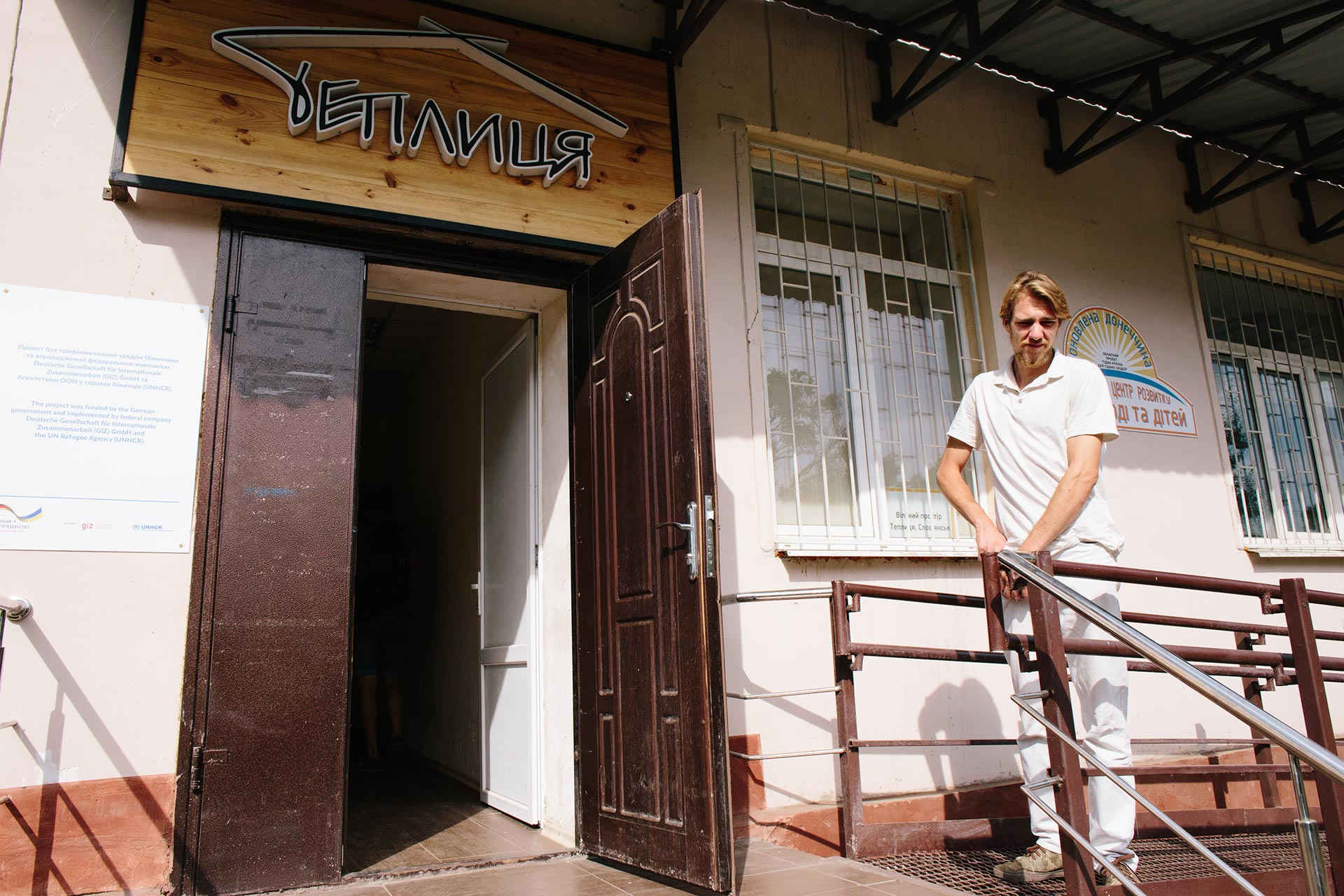
“Teplytsia” (Greenhouse)
Since 2015, the initiative platform “Teplytsia” (Greenhouse) has been operating in Sloviansk. The platform co-founder Hanna Avdiiants tells that the youth centre currently works in three main spheres: educational, social, and cultural.
— We started developing culture to make the city attractive for modern artists. We bring here modern theatre troupes, art exhibitions, musicians, etc. As for non-formal education, we show the youth how to find resources and basically teach them how to make their own money from the age of 15. We have videography, photography, and photo retouching courses. Social activities of “Teplytsia” aim to develop volunteering and give aid to those in need. We support family-type foster home and rehabilitation centre by visiting children and organizing their leisure activities.
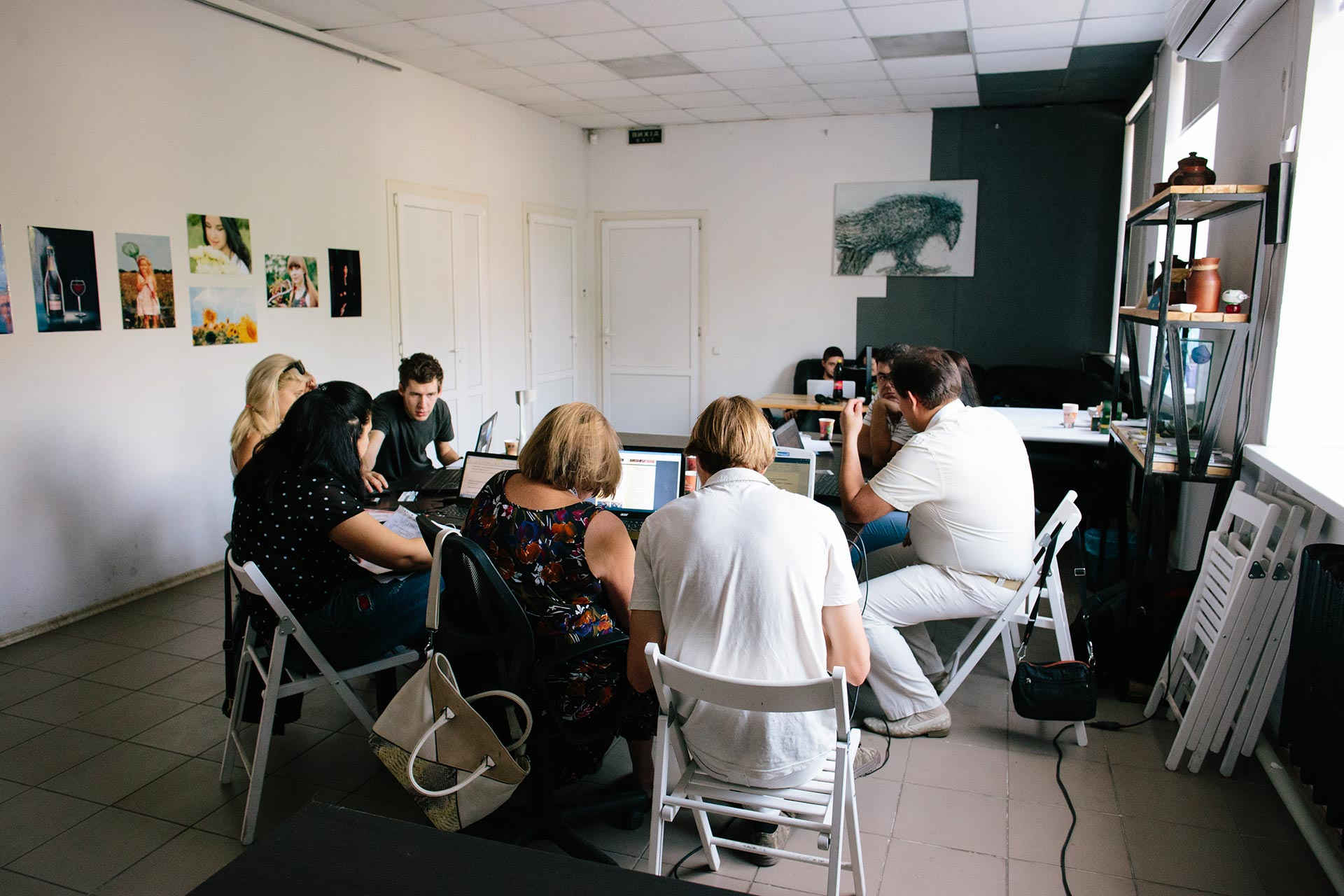
“Teplytsia” has already changed two places. At first, the platform operated for six months in the old building with no heating. Due to the lack of comfortable conditions, our team decided to rent another space, which turned out to be too expensive, though. Then “Teplytsia” addressed local authorities which provided us with a communal premises.
— We use these communal premises free-of-charge, but it’s on us to cover public utilities. We have several rooms. In the first one, Ukrainian, English, and Armenian language courses are held. The next one is used as a photography school and a photo studio. The concerts, trainings, and conferences are held in the common room. Sometimes, artists give us their paintings which we use to decorate the space.
We came up with the idea to create “Teplytsia” in Sloviansk in 2014, when the similar space was opened in Kramatorsk. Both “Vilna Khata” and “Teplytsia” were supported by the Lviv Education Foundation. Initially, the team consisted only of 4 people, who found each other through social media.
— After 2014, there was a great need for public initiatives. After the breaking of some news, people started gathering and doing things together. Our main goal since the beginning has been to show people a different life. We demonstrate that there is a different Ukraine and that life here is much better than in DNR (the one that is 100 km from here). We aim to hear the youth say, “other cities are cool, but we want ours to be cool too.”
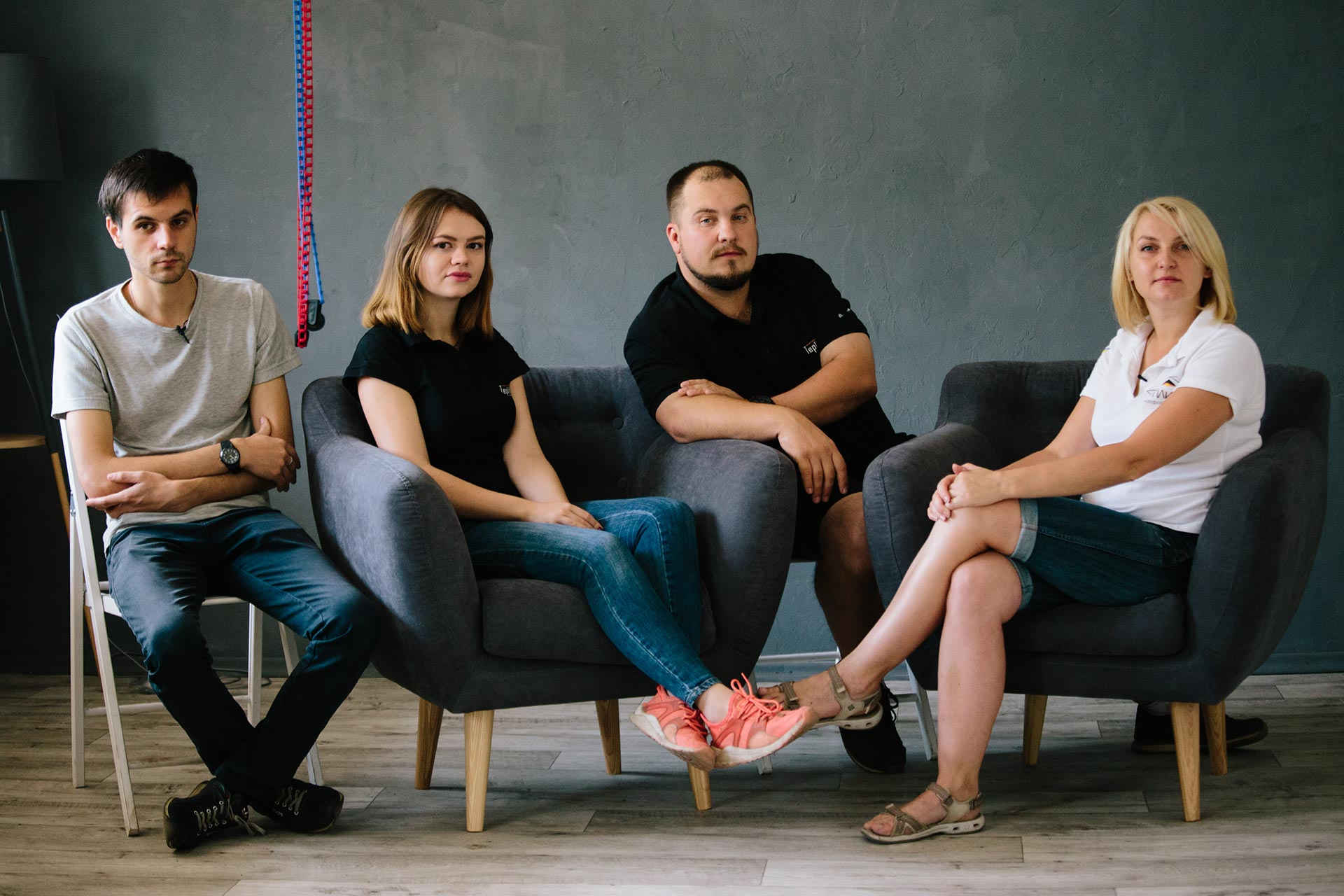
Hanna and Daria say that “Teplytsia” affects not only the youth, but also the generation of their parents. The young people previously told, “We have no money to provide for you, go study in the local university and you will work here somewhere,” now begin to study and travel more.
— The most important thing is that youth is not afraid of taking responsibility – they go to another city not hoping for their mom to put that money on their card. And they are not scared of breaking these stereotypes. We engaged youth in transformation of urban space, we implemented a small grants programme for them. And they took the initiative by creating their own projects (restoring the arch, painting murals, building enclosures for homeless animals, etc.)
Besides, Hanna and Daria say that Sloviansk residents started travelling more. Whereas previously they visited, at best, the Blue lakes near the city, today they go to other regions of Ukraine to rest. They also join weekly cycling around Sloviansk organized by the co-founder of the city cycling club “Thor” and the member of “Teplytsia” supervisory board Yurii Sokolov:
— Until 2014, Donetsk and Luhansk regions were quite aloof. Now, we go only 30 km outside the city, since the region is very compact. Once, an acquaintance of mine said, “Yurko, I’m shocked! I’ve been living here for 40 years and I’ve never seen this.” The main thing is to provide an opportunity, and then it’s up to everyone to decide whether to use it or not.
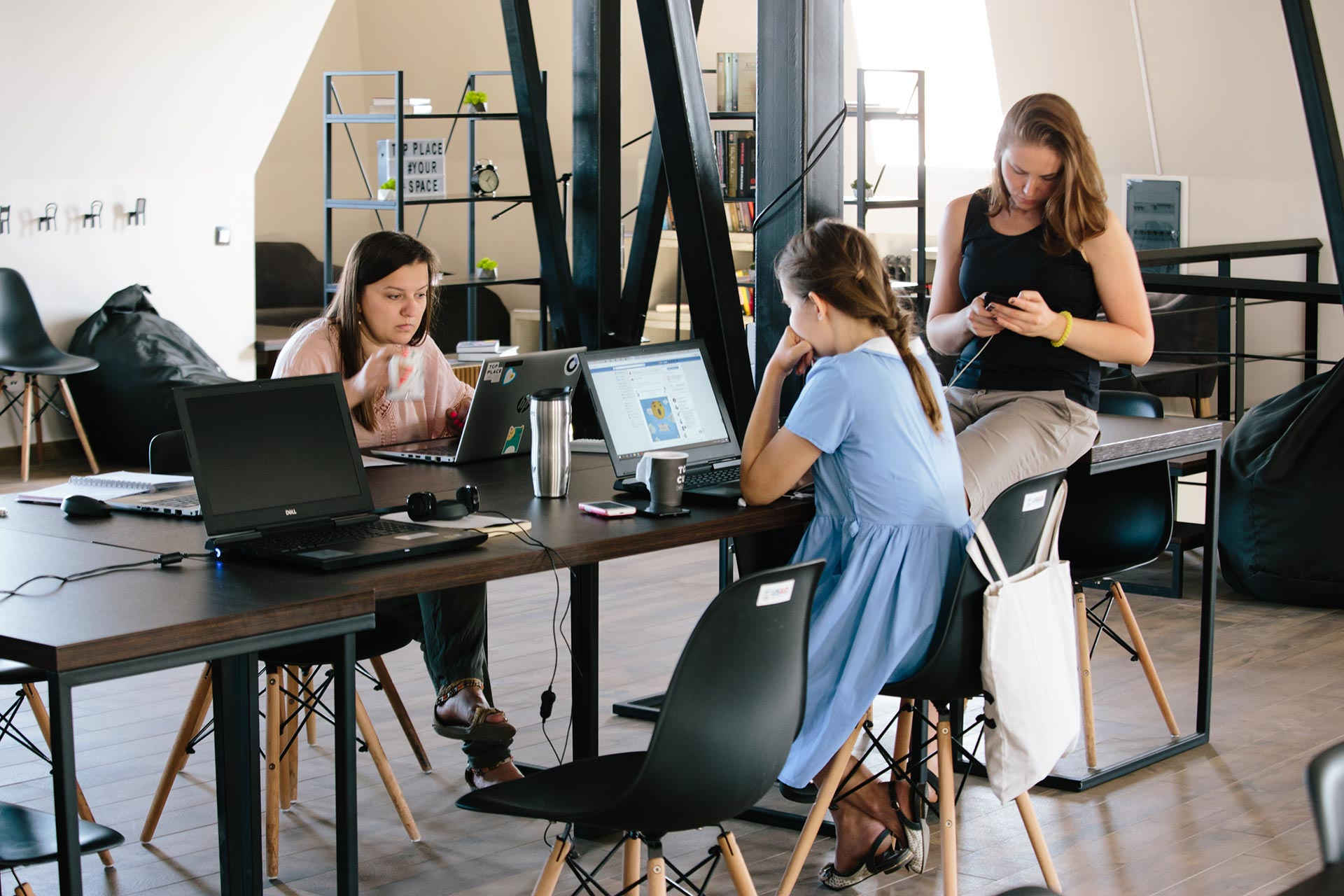
“Top Place”
In May 2018, the “Top Place” space was officially opened in Sloviansk. It consists of a co-working zone, a meeting room, and an event room. Activities of the space are focused mainly on the growth of a creative and entrepreneurial class in Eastern Ukraine, as well as the personal development of visitors. The space co-founder Hanna Kalita says that even in the first months of its operation, large-scale cultural and educational events were organized in “Top Place.”
— “Top Place” aims to develop social entrepreneurship in the Eastern region, particularly in Sloviansk. We create alternative cultural events and festivals open for thousands of people. Additionally, we organize educational courses for locals to gain new knowledge and enhance their entrepreneurial activity or work as freelancers for the large cities. Thus, people may become more competitive, remaining within their region. For if we all leave, then nothing good will be left here.
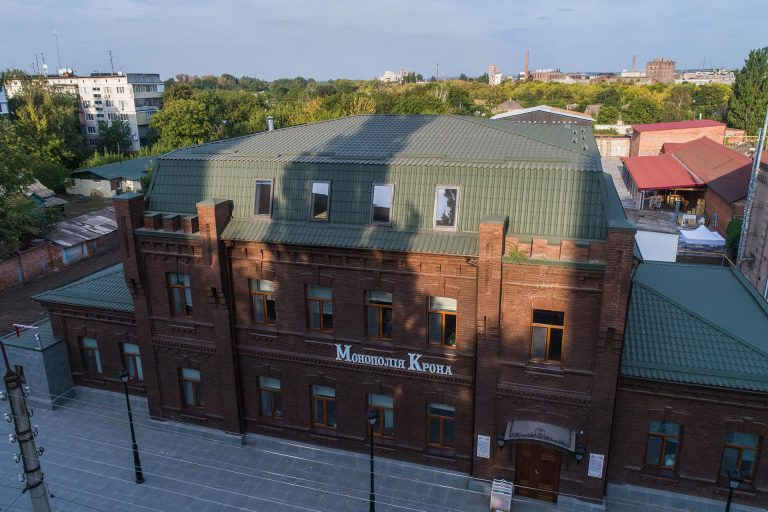
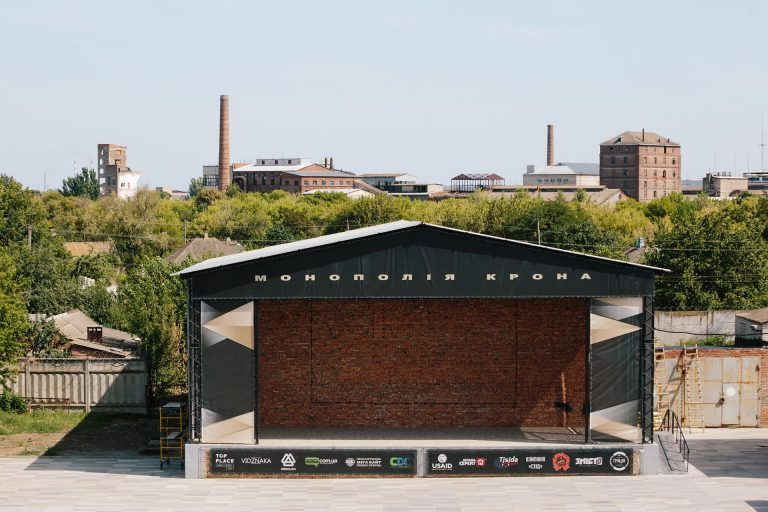
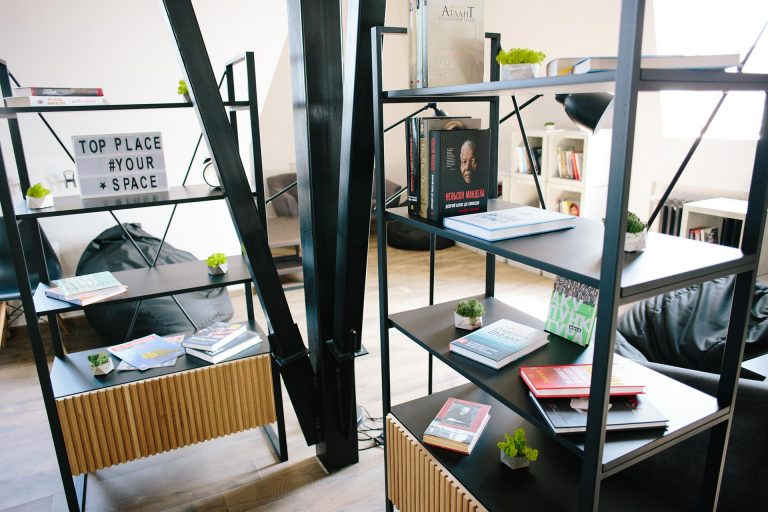
slideshow
“Top Place” is located in the historic building of Sloviansk, called “Monopolia Krona” (Kron’s Monopoly). The building is dated to the end of the XIX century and is named after the entrepreneurial dynasty of Kron. The old brick walls, high ceilings, and wide stairs are preserved here. A ceramic tile shop (there is a ceramic factory operating in the city – Auth.) is working next door in the same building. The courtyard near the “Monopolia Krona” has been restored and now festivals are held here.
Hanna Kalita recalls that in 2014 she was finishing her studies in Kharkiv. After the graduation, the girl came back to Sloviansk and together with her partners created the “Zmisto” platform – the charitable organization supporting local urban and educational projects.
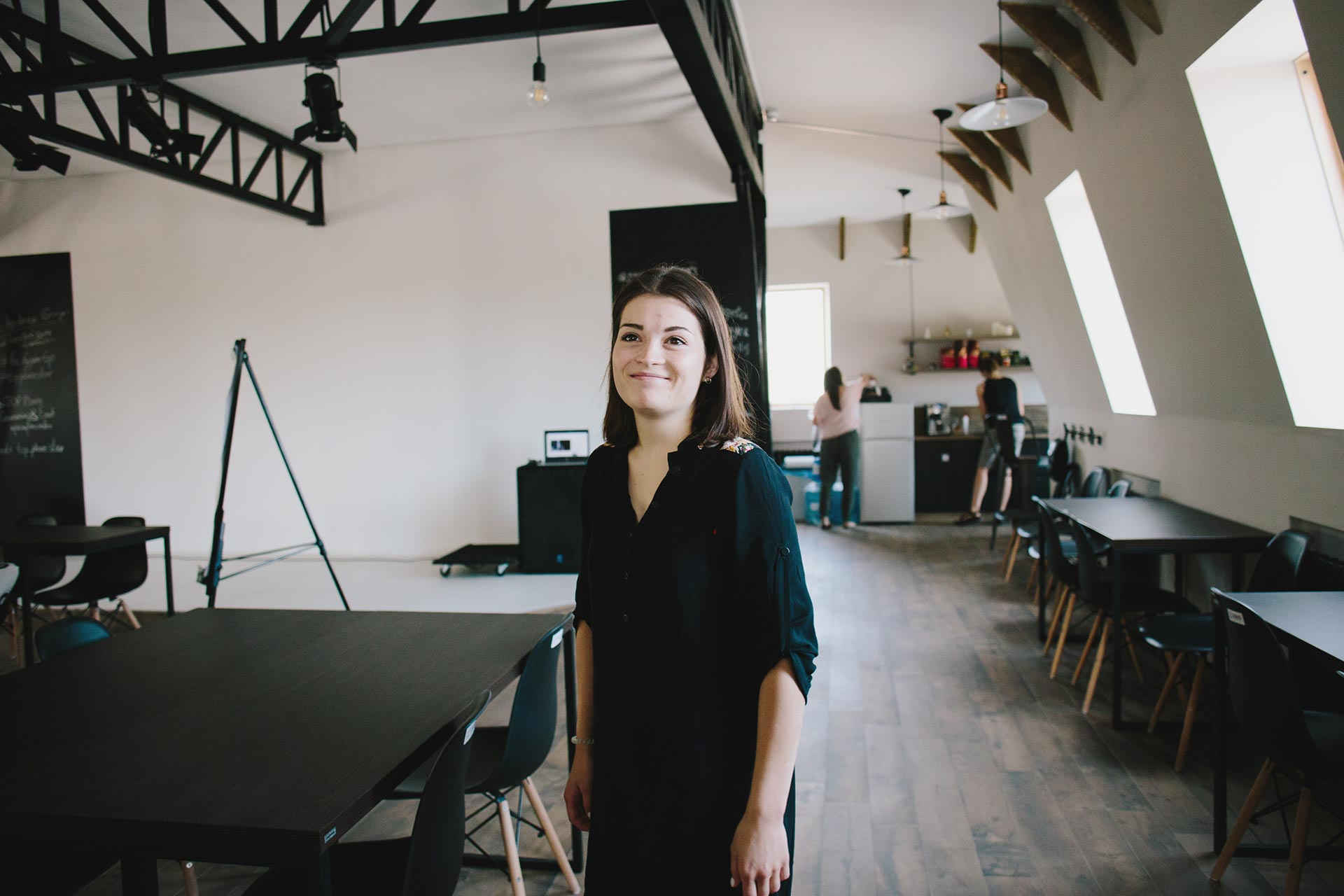
— We realized that in order to develop the city and our society we needed a permanent place to meet, share our experiences, and help each other. We launched this project so people can stay here, receive non-formal education of a good quality, and organize cultural leisure activities. Our main target audience consists of people who already have some experience and hobbies, are seeking opportunities for self-development, and who come here to learn and work.
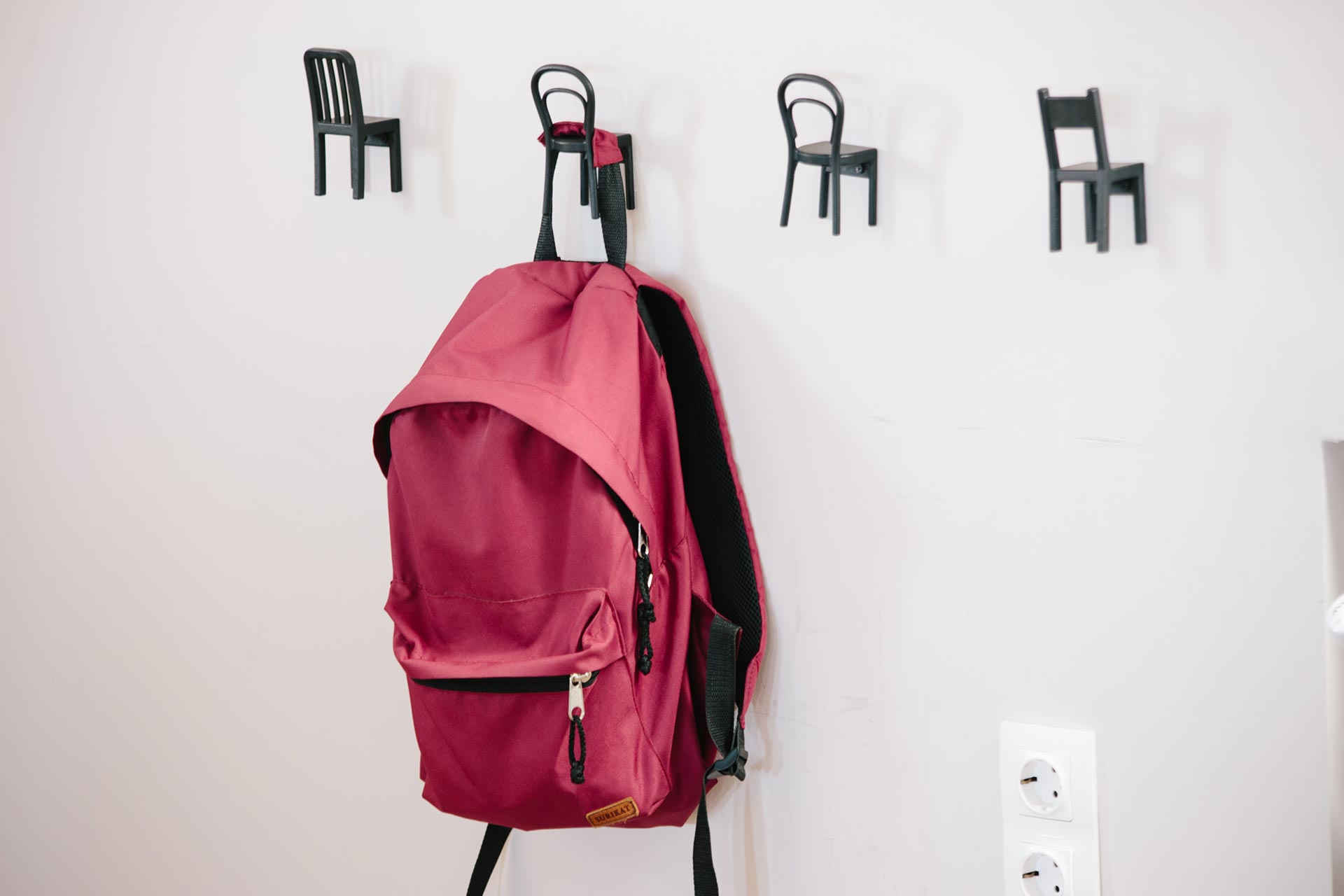
Since the beginning, founders of the space were supported by local businesses and the U.S. Agency for International Development (USAID). However, they plan to become financially independent in the future.
— We have eight partners and our general partner is Ukrainian Ceramics Group. They restored this building and the scene. However, everything that we’ve got here and the concept of this project are the result of our work.

